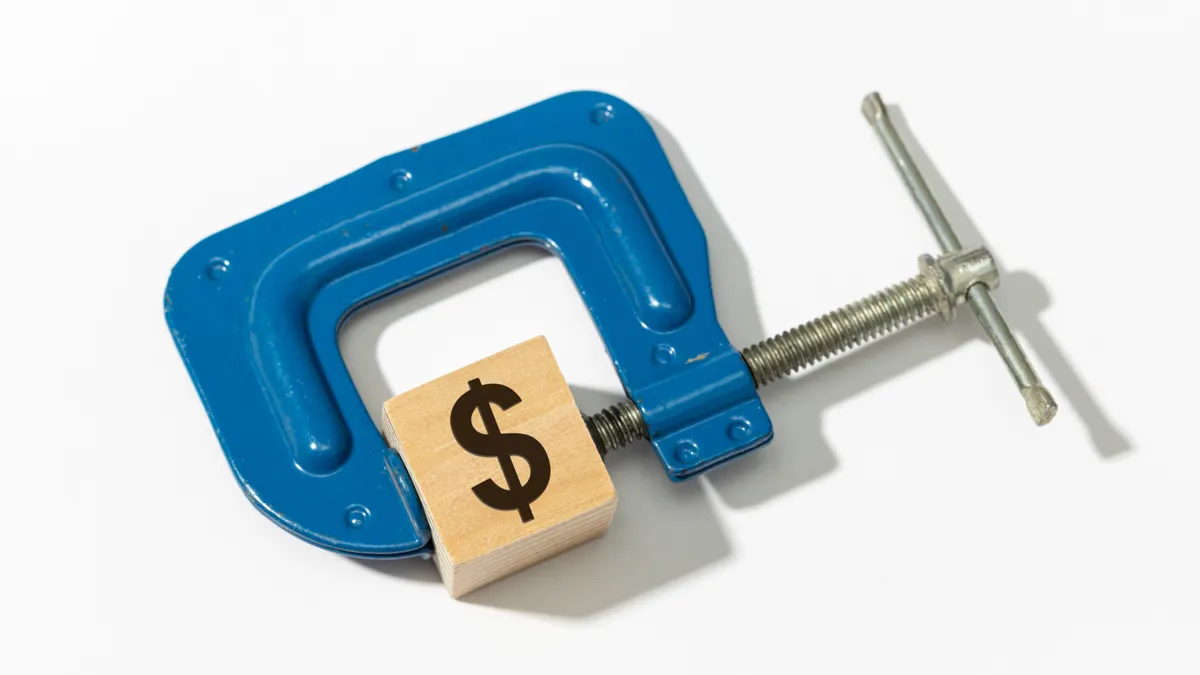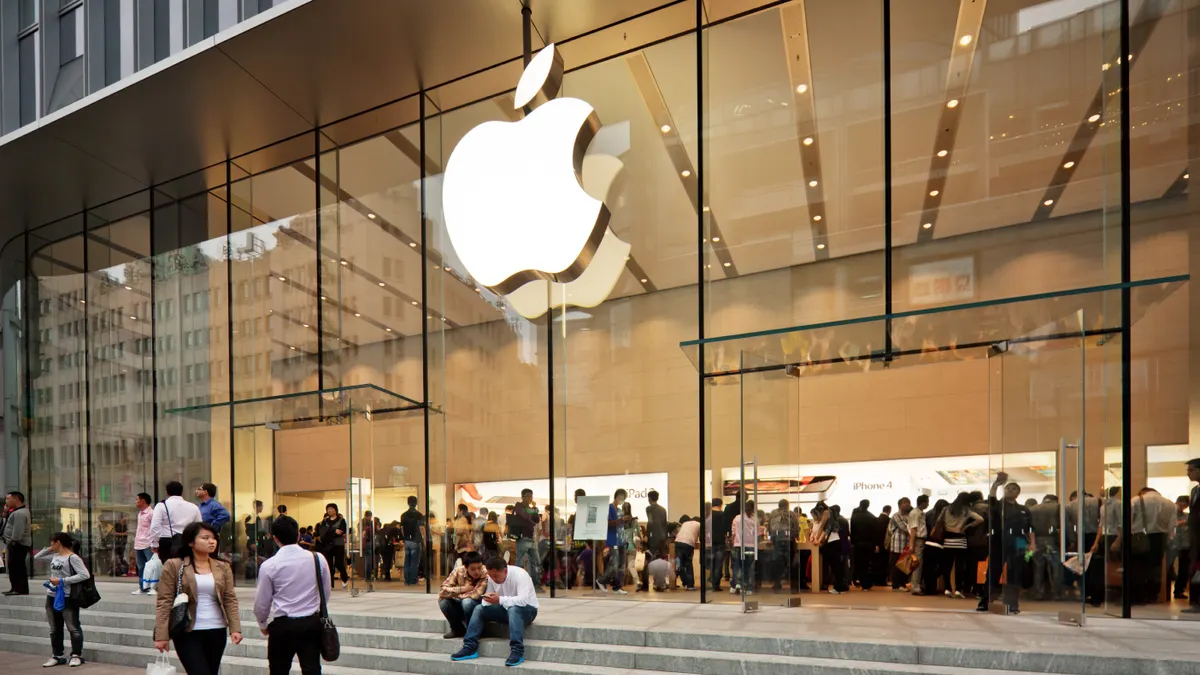Only a year ago – but a virtual millennium in Internet time – foreign exchange trading on the web seemed just around the corner for Asian corporate treasurers. All the big regional banks announced plans to offer an Internet forex (IFX) service that supplemented their proprietary systems.
Their heads of treasury services took to the stump, touting the benefits of on-line forex, and loudly. In a characteristic strain, David Worth, Standard Chartered’s group head of global products, treasury, said in the winter of 2000: “We anticipate 25 to 30 percent of deals will be dealt on-line by year-end.”
To be fair, Worth was speaking at a time of unprecedented enthusiasm for everything Internet. Back then, bankers and corporate treasurers took for granted that the Internet was going to bring order to the chaos of currency trading. Within months, it would create a unified, deeply liquid exchange for global currencies where dealers could always find a market and the best possible price.
Missing the Beat
Today, that promise remains, well, still a promise. CFOWeb.com, which set up in September 1999 as one of the first Internet forex services, has “discontinued public access”. At the moment, one estimate puts corporate IFX volume in Asia at only 2 percent.
Peter Wong, convener of the Hong Kong Association of Corporate Treasurers, gives the best reason for the slow take-up. “Most of the people I talk to are not comfortable going to the Internet to do a major deal. They would rather go to a dealer and ask if this is a good time to trade, to get the pulse of the market,” he says.
Indeed. In an informal CFO Asia poll of ten regional corporate treasurers at major companies in Asia, we found that none of them use on-line forex services and only three plan to do so in the future. Justin Chen, treasury manager of the Taiwan-based Ford Lio Ho Motor Company, and one of those polled, explains: “I don’t know what will happen in the future, but in the next couple of years I don’t think it will be the operating standard for corporates.”
Vendors, for their part, are not shy about facing up to these facts. Confesses David Jones, managing director of Cognotec Asia Pacific, an Internet forex technology provider: “The reality is that in Asia today, including Japan, a very, very small percentage is done on the Internet. The most advanced market is Australia. Japan is starting to go now. Places like Singapore and Hong Kong are only starting to get off the ground.”
What happened? The more conspiratorially minded have suggested that it has never been in banks’ interest to cross the Internet, with all its transparency and comparative pricing power, with foreign exchange. The poorer the information available to treasurers, the greater the banks’ spread, and the greater the trading profit. Why would banks want to introduce more pricing information to their clients via a web-based service?
The conspiracy theory, however, doesn’t really hold water. If a bank doesn’t offer more information to its customers, its competitors will, claiming a growing portion of the roughly US$3 trillion daily foreign exchange volume. Following that line of thinking, two significant multi-bank portals, FXall and Atriax, have recently emerged.
FXall, which boasts forex heavyweights Bank of America, Credit Suisse First Boston, Goldman Sachs, HSBC, JPMorgan, Morgan Stanley Dean Witter and UBS Warburg as its core partners, was launched in May. Atriax, which is led by Chase Manhattan Bank, Citibank and Deutsche Bank, comes armed with Reuters-fed market data and news. Atriax says its participating banks account for two-thirds of total forex volume handled by the top 100 banks, and that dealing service began in June.
Jostling the mega, multi-portals are a number of smaller Internet services, such as MatchbookFX, Gain Capital, FXCM, Currenex, forexinvesting.com, and many individual bank offerings, such as the on-line forex provided by HSBC, Standard Chartered and Lehman Brothers.
Most electronic foreign exchange – about 50 to 80 percent, according to statistics from the Bank for International Settlements – resides with private network systems such as Reuters, Bloomberg, the interbank trading platform EBS (electronic broking service), and proprietary networks such as HSBC’s Hexagon.
Private Ports
With all that activity, why have corporate treasurers been reluctant to take up Internet foreign exchange? The lack of straight-through processing (STP) is one issue. Straight-through processing means fully automated and fully electronic transactions from trade to settlement. It’s quick, cheap and accurate and leaves little room for human input error.
The larger on-line forex services – including FXall and Atriax – offer an STP solution, but the challenge has been to match up the back-office systems of corporations and financial institutions. Simply put, it is difficult, expensive and time-consuming to integrate each of these with the banks’ on-line forex systems. If an on-line order needs some degree of manual input, treasurers might wonder if there would be a huge advantage to executing over the Internet, compared to the tried, true and hugely comfortable method of trading over the phone.
Inconsistent connectivity in Asia also undermines Internet forex. No institution is going to transact on-line if their network is slow or crash-prone. Again, private networks with their dedicated lines properly address this matter. Private networks are faster, more reliable and more secure than the public Internet. Says Peter Fraser, the UK-based head of global risk management for e-commerce at Bank of America: “When looking at a web fx application, the last thing you want is the nightmare scenario when you click on the price, and then there is a 20-second wait while the system sorts out the transaction.”
The Need for Speed
Tony Cripps, HSBC’s head of e-commerce, Asia- Pacific, treasury and capital markets, agrees that corporations and financial institutions have deferred transacting on the Internet for want of speed and reliability. “The Internet really wasn’t secure enough or fast enough or reliable enough to offer foreign exchange across the web. What happens when the ISP (Internet service provider) disappears, what happens when the telephone line gets cut?” asks Cripps. He adds that the bank is ultimately held responsible for any problems. “Our customer rings up, they don’t blame the ISP, they don’t blame the telephone company, they blame HSBC,” says Cripps.
Cripps claims that the roll-out of fast, reliable broadband networks has largely eased connectivity concerns for those that have access to them, and improved encryption technology has mostly erased security concerns. However, broadband connection fees can be expensive, with these fees largely rising in line with the speed and quality of the network.
Expensive broadband charges, along with whatever subscription fees the portals levy, mean that IFX loses its cost advantage over private networks. Tommy Ong, the head of forex markets for Hong Kong-based Dao Heng Market, estimates that his institution pays about US$2,500 per month per Reuters station in Hong Kong. By comparison, Atriax says its ‘AutoAtriax’ package costs US$13,000 per month, with each additional installation of AutoAtriax costing US$4,000 per month. In addition to this charge, a client must purchase a private network connection, which Atriax says costs US$6,200 per month in Hong Kong.
A more mundane matter has also hurt on-line foreign exchange: sorting out the monumental documentation required to make it legal. The bank has to sign a client up one at a time, explain the legal implications to each and get each to sign off on the special brand of liability belonging to the Internet.
Cripps speaks of HSBC’s efforts to overcome the legal issues surrounding foreign exchange over the Internet with the wary, chastened tones of a cancer survivor. “Legal issues take an agonizingly long time to get through in some cases. You give clients a contract and their initial reaction is that it seems to be slanted to protecting the service provider. If the system goes down, it’s not our fault. If you lose a shed- load of money because you’re halfway through a deal and it dropped out, and you thought you’d done it and we didn’t think you had, our liability is limited to US$1.50,” says Cripps. “Clients say, hold on a minute, are you absolving yourself from our commercial relationship?’ The answer is no. We wouldn’t do that to our customers just because they’re using Internet contact – as always you work through the problems as they come up,” he adds.
Equally difficult has been getting regulatory approval for IFX for each country in Asia. As a new financial product, especially one that belongs to that nebulous, extra- jurisdictional environment of the Internet, on-line foreign exchange services need to be reviewed and approved for each market by the appropriate authorities. Cripps explains the difficulties: “[The regulators] must be comfortable and aware of your electronic offering, which means making all aspects of it transparent to the authorities. It’s potentially a lengthy process. You’re dealing with busy people who have things to do. They don’t always necessarily want to look at your latest whiz- bang derivatives product.”
Jones of Cognotec explains that many banks underestimated the sales and marketing challenge in making their proprietary electronic forex offerings stick, and the effort required to persuade their customers to sign e-service agreements and switch from phone. “In some banks around Asia, I have noticed resistance to change,” he says, adding that: “There is a certain amount of concern about the organizational impact of servicing over electronic channels.” Jones also thinks that in some smaller banks senior management have been skeptical, not attaching as much strategic importance to IFX as perhaps they should have.
The Effort So Far
Following that line of thinking, however, it is hard to explain why the banks have spent hundreds of millions (the Atriax platform reportedly cost US$80 million) building on-line forex, and why close to 200 banks have committed to the FXall and Atriax portals.
Cripps of HSBC says the banks have indeed supported the on-line forex project. He says: “Foreign exchange turnover has been falling globally for the last couple of years. So it’s important to maintain your franchise. If you’re not going to maintain your franchise at the actual turnover level, not just as a percentage of what’s available, you have to increase your market share.”
Indeed, the launches of Atriax and FXall should increase awareness and interest in the platform. “Companies will use Internet forex provided there is more liquidity and security,” says Lee Suan Beng, manager, asset liabilities for Singapore mass transit provider SMRT. But who will use the service and to what extent? The forex market can be broadly divided into two camps: interbank and corporate.
The interbank transactions between the biggest institutions will largely remain with EBS or telephone trading, but some IFX promoters say medium-sized banks will also migrate to the platform. This sector bears watching by corporate treasurers – any improvements introduced via interbank Internet forex will, by force of competitive practice and the openness of the web, eventually be passed on to corporate treasurers.
In fact, Ong of the Hong Kong-based Dao Heng Bank sounds like a corporate treasurer when he presents a wish list for on-line forex. “What I’m looking for,” he says, “is an integrated platform that has prices, information in terms of real-time prices, and markets – not just foreign exchange but other instruments. He also says that the industry trend towards standardization of forex products will make these easier to trade via the Internet. “A lot of the so-called derivatives have become quite plain vanilla, for example, forex options – futures or interest rate swaps. Unless we have particular needs in terms of structured finance, we can trade these on the Internet,” he says.
The Corporate Market
Tony Marrinan, the Hong Kong-based general manager of SunGard Treasury Systems, which provides eTreasury Exchange (eTX), expects that most of the on- line FX volume will be corporate to bank. He says: “The latency time (time between requesting a trade and execution) over the Internet is too long for interbank trading.” Marrinan says that for corporate on-line forex to take off in Asia, the benefits of STP need to be realized through the wider use of treasury systems and more local medium-sized banks joining the multi-bank portals. These local banks have relationships with thousands of local firms, and their participation in an Internet forex service would encourage regional firms to transact on-line.
The extent to which corporate treasurers will use Internet services still remains a question mark. There are signs of early, if embryonic, interest – the Singapore office of the German chemical concern BASF has signed onto FXall, and Nokia’s Singapore regional treasury center subscribes to Currenex, for example.
But Francis Heng, group treasurer of Hong Kong conglomerate Jardine Matheson notes: “The adoption curve for Internet FX for different countries and different regions will be different for different entities. An example is the EBS in banks. It was introduced in 1991 and was not [significantly] used until something dramatic happened, that is the Asian financial crisis in 1997-98,” he says. For example, Sue Lee, the Singapore-based risk manager at The East Asiatic Company, says the low volume of transactions conducted by the company does not justify the hassle of setting up with an IFX service.
She is also concerned about the security of on-line trading, and says she limits her on-line trades to below US$1 million. Lee says the company does all of its trading over the phone through a broker she trusts, and that she does not shop around for the best exchange rate (thereby dismissing one of IFX’s strongest features: price discovery). Even her peers at bigger companies agree.
Cripps predicts that 25 percent of HSBC’s clients will be using on-line forex within the medium term. Corporate treasurers are less optimistic. “I could see Internet forex developing but not becoming a standard in the near future in this part of the world. Probably in the US it will be implemented faster,” says Hong Kong-based Rob Mars, financial controller at P&O Nedlloyd, the Dutch-Anglo shipping company. Vincent Chow, senior treasury officer for Hongkong Electric Holdings, agrees. “I don’t see much impact on Internet foreign exchange unless it is packaged as a solution,” Chow says. “If it is a single focus on execution of trade over the Internet, it is not more beneficial than the traditional method.”
Tradition is a big thing in Asia. It appears the backers of virtual foreign exchange have their work cut out for them.
For more stories on finance and cash management in Asia, visit CFO Asia.














